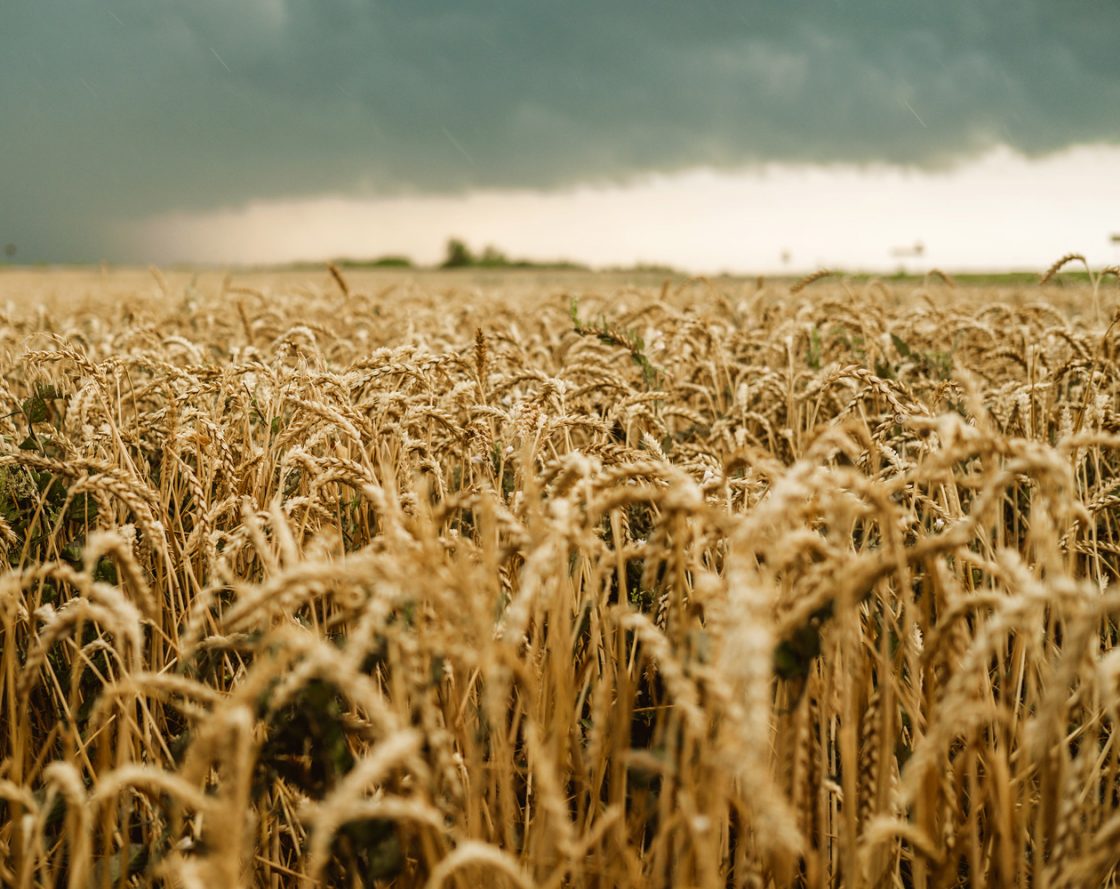
Extreme weather conditions across the UK during 2020 have resulted in the country’s worst wheat harvest in 40 years.
The effects of a poor harvest are having an impact across a broad range of farming and food industries. These unforgiving conditions combined with looming concerns over Brexit have left UK arable farmers anxious for the future.
With extreme heat, drought conditions and relentless rain in 2020, the changing weather has had an extremely detrimental effect on this year’s wheat yields which are reported to be down by up to 40% and the lowest since 2012.
The extreme weather of hot and wet conditions experienced in 2020 are likely to become more common as the climate continues to change. UK climate projections show a trend towards hotter and drier summers and warmer, wetter winters.
The bad harvest has pushed up wheat prices and sourcing the highest quality of wheat has been challenging. Those involved in the industry say the price of good quality wheat has already been increased, meaning a price rise in flour and bread is considered likely for suppliers and consumers alike.
Reduced wheat yields have had a huge knock-on effect on wheat farmer revenues. With challenging growing conditions resulting in low production levels, cash flow has been seriously impacted. In some instances, wheat is now being replaced with other more resilient, but less valuable crops.
A lack of buoyant finances within the industry will also have a knock-on effect resulting in lack of future investment in harvesting machinery, processing equipment, and grain cleaning/drying infrastructure. Naturally, this will impact future production costs and have a detrimental impact on the long-term future of the wheat industry in the UK.
Due to the lack of high quality domestically produced wheat the human food chain is affected with the likelihood of more wheat imports from other parts of the world.
Production of animal feed is not immune either with limited wheat available likely to cause increase costs across the livestock farming industry.
The effects of poor harvest is potentially exacerbated further by the uncertainty of Brexit at the end of 2020, with fears that World Trade Organisation (WTO) tariffs will be imposed on wheat that will need to be imported from overseas to meet demand.